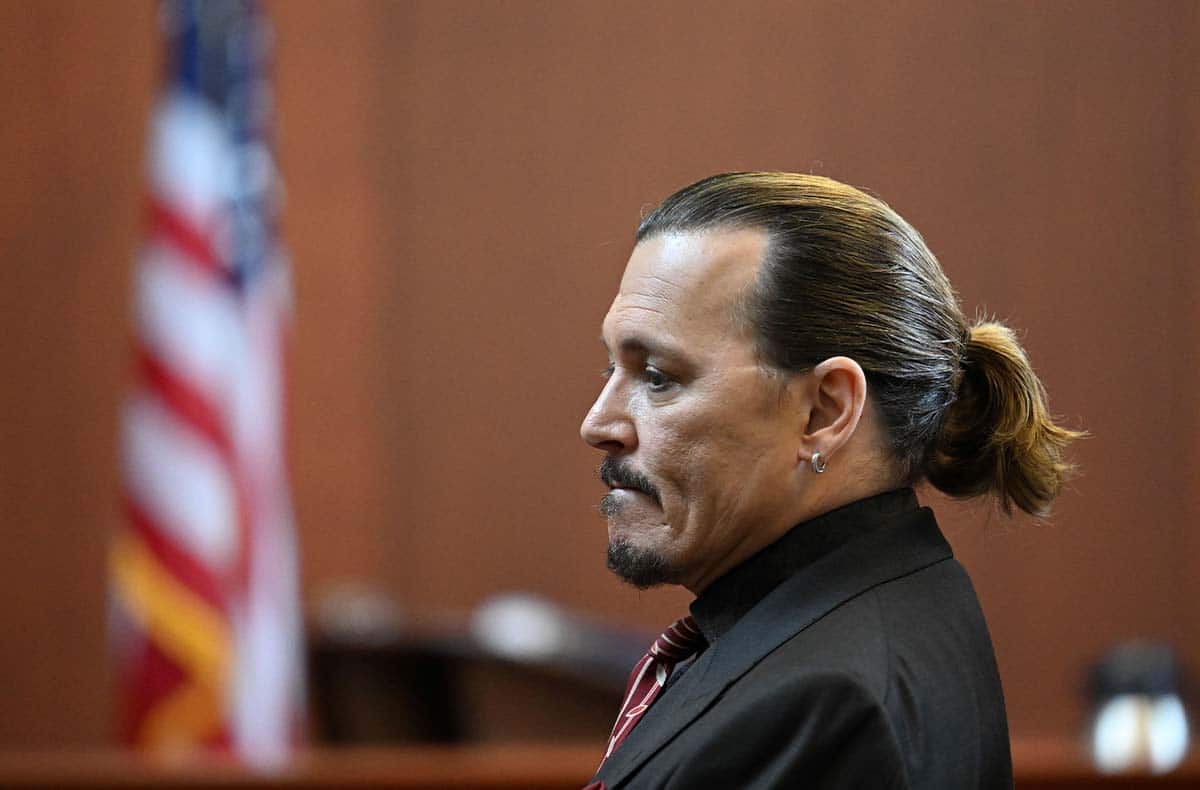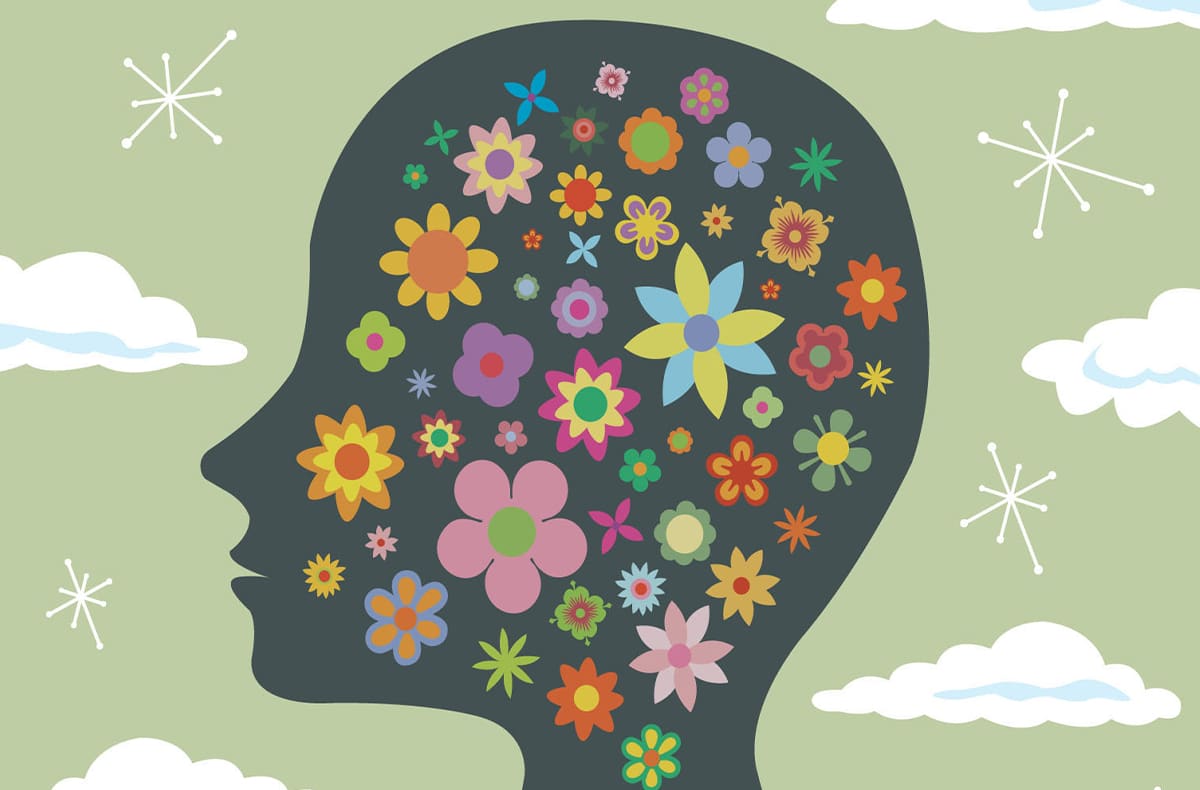
For the last four weeks, Johnny Depp and Amber Heard have been involved in a harrowing trial that has managed to drag even my attention away from the war in Ukraine. Depp is suing Heard for $50 million over a 2018 Washington Post article she wrote in which she claimed to be a domestic abuse survivor, which Depp argues cost him both movie roles and his reputation. She, in turn, is counter suing him for $100 million for defamation.
While the trial is expected to go on until May 27, the verdict in the court of public opinion is clear, with #IStandWithJohnnyDepp, #AmberHeardIsAPsychopath, and even #AmberTurd trending on Twitter.
Evidence aside, it’s not difficult to see why that is the case. At this point, both Depp and Heard have individually taken the stand for several days in a row of grueling and intensely private testimonies. Depp came across as calm, credible, and careful with his words in his, giving a heartbreaking account of the physical and emotional abuse he endured as a child at the hands of his mother which served as an explanation for why he would have stayed in a relationship in which he was, once again, the victim of a woman’s rage.
Equally compelling is the infamous audio recording in which you hear Heard taunting Depp as she says, “Tell the world, Johnny. Tell them, ‘I Johnny Depp… am a victim of domestic violence,’… and see how many people believe or side with you.” Of course you want to side with him and make him represent all men who have ever been abused by a woman without ever being vindicated.
Her testimony, however, is painful to watch. She gives long, flowery descriptions of the early days of their relationship, insisting they were so very much in love (which is not the focus of the trial). She refers to him as “Johnny,” while he used the more respectful and detached “Miss Heard.” She repeats herself a lot, giving odd details when describing his alleged physical and sexual abuse and then not remembering anything of actual importance. Put quite plainly, she sounds like she’s lying.
She also frequently scrunches up her face as though she’s sobbing even though there are no tears. And she seems to wildly oscillate between joy and despair, which—to be fair—could be a hallmark of the Borderline Personality Disorder and Histrionic Personality Disorder with which she was diagnosed, or it could just be really bad overacting. Social media deemed it the latter, with one Twitter user summing it up nicely by writing, “I feel like I’m watching Amber Heard playing the role of Amber Heard in a made for tv movie about Johnny Depp.”
What I found particularly cringe is how hard she was trying to make us view her as a broken but courageous survivor of domestic abuse, constantly emphasizing how she always got back up again after he pushed her to the ground. I hate to say this, but it reminded me of the excesses of the #MeToo movement—and, specifically, why actresses are faulty narrators. From Rose McGowan, who went a little off the rails in her bid to be in the spotlight of it all, to that grabbing-at-straws “exposé” on Aziz Ansari—there were a few examples of women who diminished the experiences of real survivors, and served as reminders of what happens when narcissists leap at social justice movements.
All that being said, here is why I still feel like all of the hate the internet is throwing at Heard is unjustified and unkind. Firstly, we don’t know, nor will we ever truly know, what went down between them. Between all the drugs and alcohol that they consumed, I’m not convinced either of them will ever really know either. That’s one of the most terrible things about being blackout drunk: Someone can tell you you did all sorts of horrible things the following day and, in the absence of evidence, you sort of just have to believe them, because you weren’t really there.
Secondly, as much as Depp’s lawyers try to diminish this, much of the evidence we’ve seen makes it pretty clear he was dealing with some pretty intense substance abuse issues throughout their marriage. Heard’s explosive testimony about him sexually assaulting her with a bottle of vodka might sound like an outlandish lie—and I hope that it is—but I’ve seen someone in the middle of a bender, and I know they are capable of doing anything, including actions that are extremely incongruent with their personality. Sadly, I understand what she means when she says, “He wasn’t there anymore, it wasn’t Johnny.”
Finally, and perhaps most importantly, when Heard first made her allegations against Johnny Depp in 2016, and everyone jumped on them like they were hot tamales, I told everyone that I believed abusive relationships were complicated and that it was very rare for one person to be 100 percent right and another to be 100 percent wrong. Obviously, I got slammed on social media for not blindly defending Heard and friends accused me of “internalized misogyny.” Now, I once again say that abusive relationships are complicated and I don’t know why everyone feels the need for one person to be the “victim” and one person to be “the abuser” when it is so rarely the case. Once again, I get the same hateful and myopic reaction on Twitter, this time for not rabidly defending Depp, but I stand by this belief.
We fixate on physical violence, because it is arguably the most dangerous and the easiest to prove, but abuse can come in many forms. Emotional abuse is very much a form of abuse. Neglect can be a form of abuse. Some of the audio recordings we hear in court seem to make it clear that Depp is someone who needs space during an argument to prevent things from escalating, whereas she views that as abandonment (abandonment issues being a common symptom of BPD). This is a tragic combo that, sadly, I am very familiar with, and it’s really no one’s fault.
There’s one recording in particular that I found triggering. Depp is telling Heard that he needs to leave to disengage with their argument, and she begs and pleads for him to stay. This goes on for a while until she is sobbing and gasping for breath in a way that felt much more authentic than anything she displayed in court, while saying, “You’re killing me, you’re actually killing me.”
I’ve been hit by a man before. I’ve been shoved up against a wall, grabbed by the hair, pinned to the floor. I’ve also had a man walk out the door during an argument. I’m not proud to admit this, but, as someone with some abandonment issues, I would have taken getting hit in the face over the agony of not knowing where he was or what he was thinking or when, if ever, he would be back a thousand times over. It’s hell, and it’s taken a lot of work on myself over the years to overcome the urge to block the door for the greater good for both of us.
If someone causes you that kind of agony, even if you realize on a rational level that it wasn’t intentional, all you really know is that someone is causing you immense pain, and that’s when you have to override the urge to retaliate.
It seems likely that Heard faked the bruises she allegedly got from Depp back when she first publicly claimed he had physically assaulted her. I can’t condone that, but I’ll say this: The thing that’s shitty about emotional abuse is that it’s invisible. If someone hits you and leaves a mark, you have evidence; you can point your finger and say, “See? He did that to me,” and expect people to sympathize with you and demonize him. You can’t do that with emotional abuse. Hearing her beg and plead and sob on multiple recordings in court, I can see why she might have wanted a physical manifestation of the pain he caused her. I can’t condone it, but I can understand.



